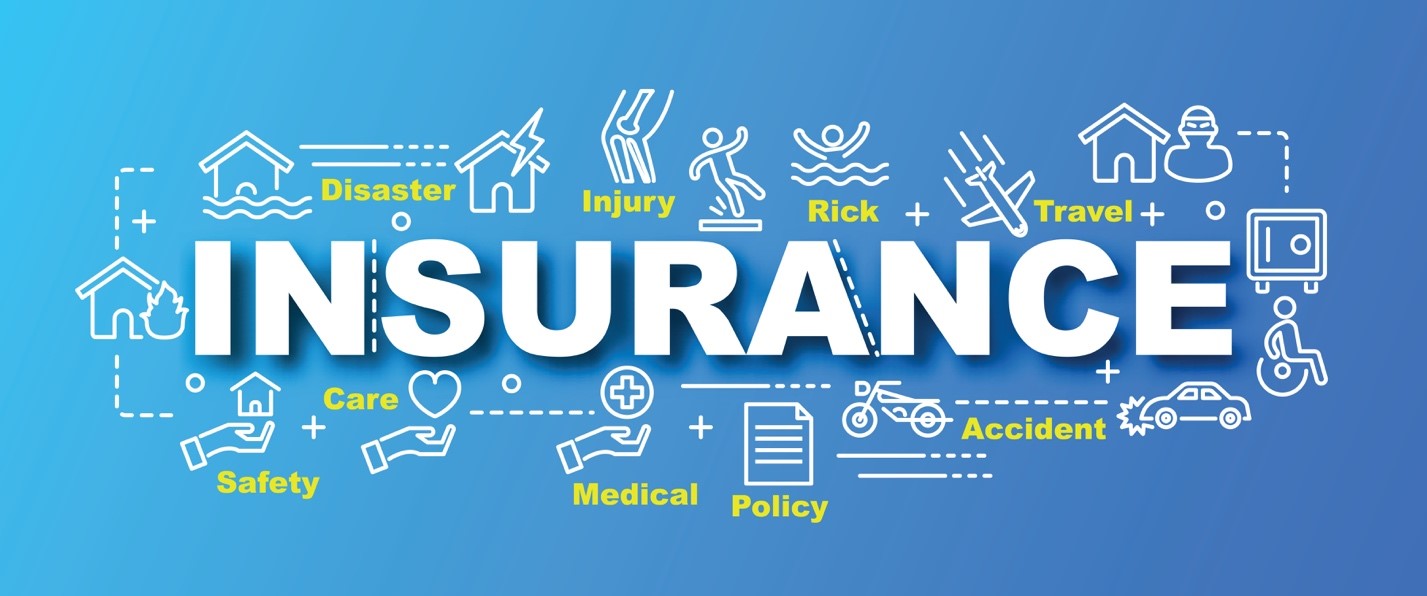Insurance Claim Adjuster

The role of an insurance claim adjuster is pivotal in the insurance industry, serving as a bridge between policyholders and insurance companies. These professionals are responsible for assessing, evaluating, and settling claims, ensuring fair and timely resolutions. In an era where natural disasters, accidents, and unforeseen events are an unfortunate reality, the expertise of claim adjusters is indispensable for both individuals and businesses seeking to recover from losses.
The Role and Responsibilities of an Insurance Claim Adjuster

An insurance claim adjuster is a highly skilled professional tasked with managing and resolving insurance claims. Their primary objective is to investigate and assess the validity and extent of insurance claims, ensuring that policyholders receive the compensation they are entitled to while also protecting the interests of the insurance company.
The adjuster's role is multifaceted, involving a range of critical tasks. They are responsible for thoroughly reviewing insurance policies to understand the scope of coverage and any applicable exclusions. This meticulous process ensures that claims are evaluated fairly and in line with the terms agreed upon between the insurer and the policyholder.
In the event of a claim, the adjuster's first step is to conduct a comprehensive investigation. This may involve inspecting the damaged property, interviewing witnesses, and gathering relevant documentation. By collecting and analyzing this data, adjusters can make informed decisions about the validity and value of the claim.
Once the investigation is complete, the adjuster must determine the appropriate course of action. This could range from approving the claim and authorizing payment to denying the claim if it falls outside the policy's coverage or involves fraudulent activity. In some cases, the adjuster may negotiate with the policyholder to reach a mutually agreeable settlement.
The adjuster also plays a crucial role in managing the claim's financial aspects. They calculate the cost of repairs or replacements, taking into account the policy's limits and any applicable deductibles. This process ensures that the compensation offered is fair and aligns with the policyholder's needs while also protecting the insurer's financial interests.
Skills and Expertise Required
The role of an insurance claim adjuster demands a unique set of skills and expertise. Adjusters must possess a deep understanding of insurance policies and coverage, allowing them to interpret complex language and apply it to specific situations.
Excellent analytical and problem-solving skills are essential. Adjusters must be able to assess claims objectively, identify potential issues, and develop effective solutions. This often involves sifting through large amounts of data and making critical decisions based on the information at hand.
Strong communication and interpersonal skills are also vital. Adjusters regularly interact with policyholders, often during stressful and challenging times. They must be empathetic, patient, and skilled at explaining complex insurance concepts in a clear and concise manner.
Additionally, adjusters must have a keen eye for detail and be adept at conducting thorough investigations. This includes the ability to identify potential fraud and understand the nuances of various types of claims, whether it's property damage, liability, or health-related issues.
| Skill Set | Description |
|---|---|
| Insurance Policy Knowledge | In-depth understanding of various insurance policies and coverage types. |
| Analytical Proficiency | Strong analytical skills for assessing claims and making informed decisions. |
| Communication Excellence | Exceptional communication skills for interacting with policyholders and stakeholders. |
| Investigation Expertise | Ability to conduct thorough investigations, identify potential fraud, and assess damages. |

The role of an insurance claim adjuster is demanding but rewarding. Adjusters play a critical role in helping individuals and businesses recover from losses, offering guidance and support during challenging times. Their expertise and dedication ensure that the insurance process runs smoothly, providing much-needed peace of mind to those in need.
The Claims Process: A Step-by-Step Guide

The claims process is a critical component of the insurance industry, and understanding its intricacies is essential for both policyholders and professionals alike. From the initial reporting of a claim to the final settlement, this process is designed to ensure fair and efficient resolutions.
Step 1: Claim Reporting
The first step in the claims process is the reporting of a loss or incident. Policyholders are typically required to provide prompt notification to their insurance company, detailing the nature of the claim and any relevant information. This may include photographs, witness statements, or other documentation to support the claim.
Upon receiving the claim report, the insurance company assigns a unique claim number and allocates the case to a designated adjuster. This adjuster becomes the primary point of contact for the policyholder throughout the claims process.
Step 2: Claim Investigation
The adjuster’s initial task is to conduct a thorough investigation. This involves inspecting the damaged property, if applicable, and gathering relevant evidence. The adjuster may also request additional documentation, such as repair estimates or medical records, depending on the nature of the claim.
During the investigation, the adjuster assesses the validity and extent of the claim. They evaluate the policyholder's coverage, policy limits, and any applicable deductibles. This step is crucial in determining the claim's eligibility for compensation and the potential amount that may be awarded.
Step 3: Determining Coverage and Liability
Once the investigation is complete, the adjuster must determine whether the claim is covered under the policy and whether the policyholder is entitled to compensation. This involves a detailed review of the policy’s terms and conditions, ensuring that the claim falls within the scope of coverage.
If the claim is valid and covered, the adjuster proceeds to assess liability. In some cases, liability may be clear, such as in a car accident where fault is easily determined. However, in more complex situations, the adjuster may need to gather additional evidence or consult with experts to establish liability.
Step 4: Settlement and Payment
Once the coverage and liability aspects are resolved, the adjuster moves on to the settlement phase. This involves negotiating with the policyholder to reach a mutually agreeable settlement amount. The adjuster takes into account the policy limits, deductibles, and the extent of the loss when determining the final settlement.
Upon agreement, the insurance company processes the payment, typically transferring the funds to the policyholder's designated account. In some cases, the adjuster may also assist in arranging repairs or replacements, ensuring that the policyholder receives the necessary support to recover from the loss.
| Claims Process Steps | Description |
|---|---|
| Claim Reporting | Policyholders report losses or incidents to their insurance company. |
| Claim Investigation | Adjusters conduct thorough investigations, gathering evidence and assessing damages. |
| Determining Coverage and Liability | Adjusters evaluate policy coverage and liability to determine eligibility for compensation. |
| Settlement and Payment | Negotiations lead to a settlement, followed by payment processing and support for recovery. |
The claims process is a meticulous and often time-consuming journey. However, with the expertise of skilled insurance claim adjusters, policyholders can navigate this process with confidence, knowing that their claims are being handled fairly and efficiently. Adjusters play a crucial role in ensuring that policyholders receive the compensation they deserve, helping them recover from losses and move forward with their lives.
The Future of Insurance Claims: Technological Innovations and Industry Trends
The insurance industry is experiencing a period of rapid transformation, driven by technological advancements and changing consumer expectations. As the landscape evolves, the role of insurance claim adjusters is also adapting to meet the challenges and opportunities presented by these shifts.
The Impact of Technology
Technology is revolutionizing the claims process, introducing efficiency and convenience. Insurtech, a term used to describe the intersection of insurance and technology, is at the forefront of this transformation. Advanced analytics, artificial intelligence, and machine learning are being leveraged to streamline claims handling, improve accuracy, and enhance the overall customer experience.
For example, drones are now being used to conduct rapid damage assessments, especially in cases of natural disasters or large-scale accidents. This technology enables adjusters to gather comprehensive data and visual evidence without putting themselves in harm's way. Similarly, virtual reality and augmented reality tools are being explored to provide immersive claim assessments, allowing adjusters to "visit" a damaged site remotely.
Additionally, the use of telematics in auto insurance is gaining traction. This technology collects and analyzes data from vehicles, providing real-time insights into driving behavior and accident scenarios. By leveraging telematics, adjusters can make more accurate liability determinations and better assess the extent of damages.
Industry Trends and Challenges
The insurance industry is also facing new challenges and opportunities in the realm of environmental, social, and governance (ESG) considerations. As climate change and sustainability become increasingly important, insurers are adapting their policies and claims processes to address these issues.
For instance, there is a growing focus on resilience and disaster preparedness. Insurers are developing innovative products and services to help policyholders mitigate risks and recover more effectively from natural disasters. This includes offering incentives for disaster-resistant construction practices and providing resources for emergency preparedness.
Moreover, the rise of remote work and the gig economy has led to a shift in liability considerations. Adjusters are now faced with the task of evaluating claims in a landscape where traditional employment boundaries are blurred. This requires a nuanced understanding of the evolving nature of work and the associated risks.
The Evolving Role of Adjusters
In this evolving landscape, the role of insurance claim adjusters is expanding. Adjusters are no longer just assessors of damages; they are becoming trusted advisors, guiding policyholders through the claims process and offering valuable insights. They play a crucial role in educating policyholders about their coverage, helping them understand their rights and responsibilities, and ensuring they receive the support they need to recover from losses.
Furthermore, adjusters are increasingly involved in risk management and prevention. By analyzing claim data and identifying patterns, adjusters can provide valuable insights to insurers, helping them develop more effective risk mitigation strategies. This proactive approach not only benefits the insurer but also contributes to a more resilient and sustainable insurance industry.
Frequently Asked Questions
How do insurance claim adjusters determine the value of a claim?
+
Adjusters employ a comprehensive approach to assess the value of a claim. This includes reviewing policy coverage, evaluating the extent of damages, and considering factors such as repair costs, replacement value, and depreciation. They may also consult with experts or use specialized software to accurately determine the claim’s value.
What happens if a claim is denied by the insurance company?
+
If a claim is denied, policyholders have the right to appeal the decision. They can provide additional evidence or documentation to support their case. In some instances, they may also seek the assistance of an insurance advocate or legal counsel to navigate the appeals process.
How long does the claims process typically take to complete?
+
The duration of the claims process can vary depending on the complexity of the claim and the insurance company’s workload. Simple claims may be resolved within a few days or weeks, while more complex cases can take several months. It’s essential for policyholders to maintain open communication with their adjuster to understand the progress of their claim.
Can policyholders negotiate the settlement amount offered by the insurance company?
+
Yes, policyholders have the right to negotiate the settlement amount. Adjusters are often open to discussions and may consider additional evidence or circumstances that could impact the value of the claim. It’s important for policyholders to provide a well-supported case for any requested adjustments.
What are some common challenges faced by insurance claim adjusters in their work?
+
Adjusters encounter various challenges, including fraudulent claims, complex liability scenarios, and emotional or difficult interactions with policyholders. Additionally, keeping up with evolving technologies, industry regulations, and changing consumer expectations can be demanding. However, their expertise and dedication help them navigate these challenges effectively.



